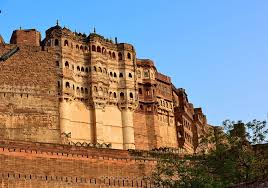

India’s history is like a fascinating story woven over thousands of years. It includes ancient civilizations, mighty empires, and important cultural changes. By exploring the past, we get a glimpse of the extraordinary events and people that shaped India’s present and future. To make this journey engaging, we have created a quiz on India’s history. Test your knowledge and discover intriguing facts about India’s rich heritage.
Unraveling The Past : A 25-Question Quiz on History of India
Here’s a quiz on the history of India. Test your knowledge and enjoy the journey through India’s rich past:
1. Which ancient civilization flourished in the Indus River valley?
a) Mesopotamian Civilization
b) Egyptian Civilization
c) Indus Valley Civilization
d) Greek Civilization
2. Who was the founder of the Maurya Empire?
a) Ashoka the Great
b) Chandragupta Maurya
c) Akbar the Great
d) Harsha Vardhana
3. The Gupta Empire is often referred to as the “Golden Age” of India. Which field witnessed significant advancements during this period?
a) Medicine
b)Mathematics
c) Astronomy
d) All of the above
4. Which Mughal emperor built the iconic Taj Mahal in memory of his wife? a) Akbar
b) Jahangir
c) Shah Jahan
d) Aurangzeb
5. Who was the prominent leader of the Indian independence movement known as the “Father of the Nation”?
a) Jawaharlal Nehru
b) Subhash Chandra Bose
c) Mahatma Gandhi
d) Bhagat Singh
6. In which year did India gain independence from British rule?
a) 1945
b) 1946
c) 1947
d) 1948
7. The partition of India in 1947 led to the creation of which country?
a) Pakistan
b) Sri Lanka
c) Bangladesh
d) Nepal
8. Which emperor embraced Buddhism after witnessing the horrors of the Kalinga War?
a) Ashoka the Great
b) Chandragupta Maurya
c) Harsha Vardhana
d) Akbar the Great
9. The ancient Indian text known as the “Vedas” was composed during which period?
a) Vedic Period
b) Maurya Empire
c) Gupta Empire
d) Mughal Empire
10. The Delhi Sultanate ruled a significant part of India during which period?
a) 9th – 12th century
b) 11th – 14th century
c) 13th – 16th century
d) 15th – 18th century
11. Who was the first Emperor of the Mughal dynasty in India?
a) Babur
b) Humayun
c) Akbar
d) Jahangir
12. The famous “Battle of Plassey” took place in which year and marked the beginning of British dominance in India?
a) 1757
b) 1764
c) 1857
d) 1947
13. Which Indian leader famously led the “Salt March” as a symbol of civil disobedience during the Indian independence movement?
a) Jawaharlal Nehru
b) Bhagat Singh
c) Sardar Vallabhbhai Patel
d) Mahatma Gandhi
14. The iconic Iron Pillar of Delhi, known for its rust-resistant properties, belongs to which ancient era?
a) Maurya Empire
b) Gupta Empire
c) Harappan Civilization
d) Mughal Empire
15. Who was the famous Indian mathematician and astronomer who accurately calculated the value of π (pi)?
a) Aryabhata
b) Brahmagupta
c) Varahamihira
d) Bhaskara II
16. The “Quit India Movement,” a major civil disobedience campaign, was launched in which year against British rule?
a) 1857
b) 1905
c) 1919
d) 1942
17. The “Junagadh Uprising” played a crucial role in the integration of which Indian state into the Indian Union?
a) Hyderabad
b) Jammu and Kashmir
c) Manipur
d) Junagadh
18. The historic “Dandi March” led by Mahatma Gandhi was aimed at protesting against which British monopoly in India?
a) Salt tax
b) Tea trade
c) Cotton textiles
d) Indigo cultivation
19. The magnificent temple complexes of Khajuraho are famous for their intricate sculptures and belong to which dynasty?
a) Chola Dynasty
b) Pallava Dynasty
c) Gupta Dynasty
d) Rajput Dynasty
20. The historic “Red Fort” in Delhi was constructed during the reign of which Mughal emperor?
a) Babur
b) Jahangir
c) Aurangzeb
d) Shah Jahan
21. Who was the Indian freedom fighter and spiritual leader known for his nonviolent resistance and philosophy of Satyagraha?
a) Subhash Chandra Bose
b) Bhagat Singh
c) Rabindranath Tagore
d) Mahatma Gandhi
22. The ancient university of Nalanda, a renowned center of learning, was located in which present-day Indian state?
a) Bihar
b) Uttar Pradesh
c) Madhya Pradesh
d) Rajasthan
23. The Kalinga War, fought by Emperor Ashoka, had a profound impact on him, leading to his conversion to which religion?
a) Hinduism
b) Jainism
c) Buddhism
d) Islam
24. Who was the Maratha warrior king who led a formidable resistance against the Mughal Empire in the 17th century?
a) Shivaji
b) Rana Pratap
c) Akbar the Great
d) Aurangzeb
25. The Indian Rebellion of 1857, also known as the Sepoy Mutiny, marked a significant turning point in India’s struggle for independence against British rule. In which city did it primarily begin?
a) Delhi
b) Kolkata
c) Mumbai
d) Lucknow
Answers:
- c) Indus Valley Civilization
- b) Chandragupta Maurya
- d) All of the above
- c) Shah Jahan
- c) Mahatma Gandhi
- c) 1947
- a) Pakistan
- a) Ashoka the Great
- a) Vedic Period
- c) 13th – 16th century
- a) Babur
- a) 1757
- d) Mahatma Gandhi
- c) Harappan Civilization
- a) Aryabhata
- d) 1942
- d) Junagadh
- a) Salt tax
- c) Gupta Dynasty
- d) Shah Jahan
- d) Mahatma Gandhi
- a) Bihar
- c) Buddhism
- a) Shivaji
- a) Delhi
Enjoy the quiz and explore the fascinating history of India!